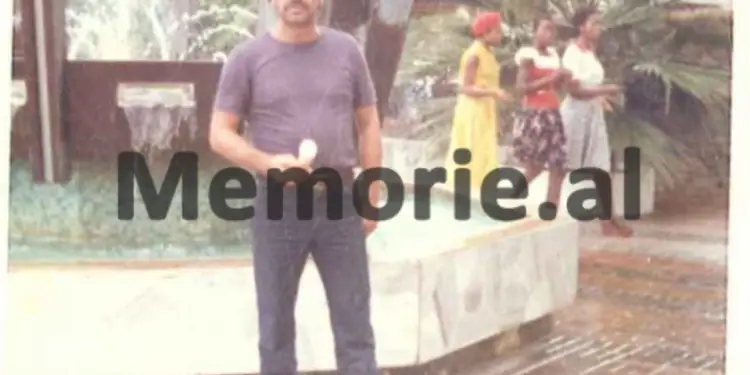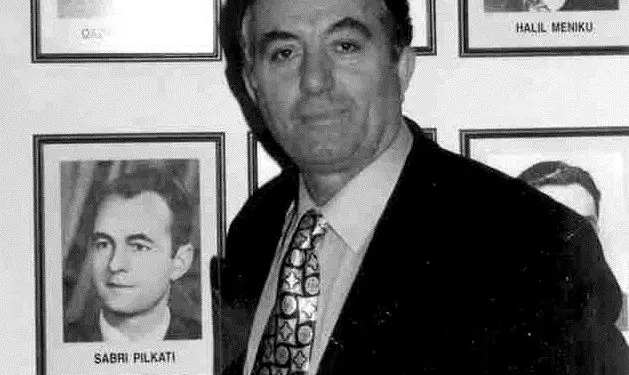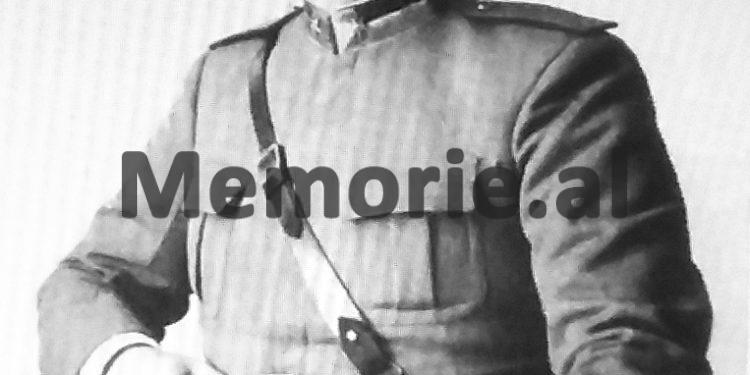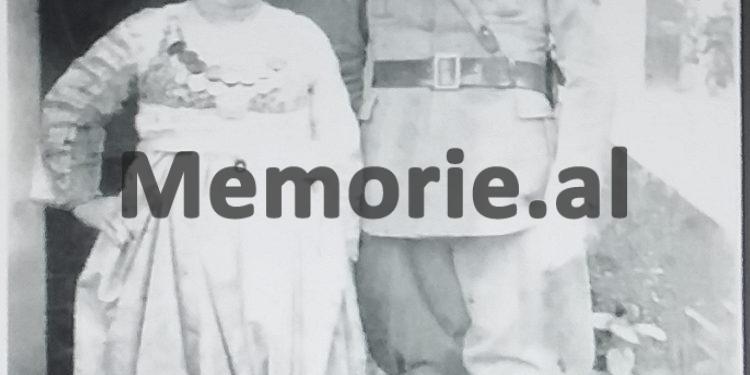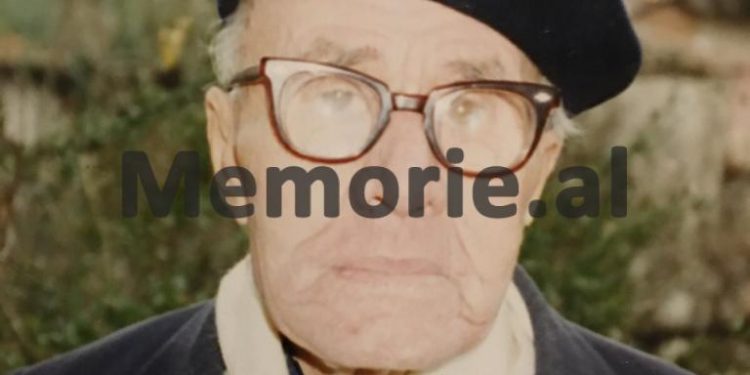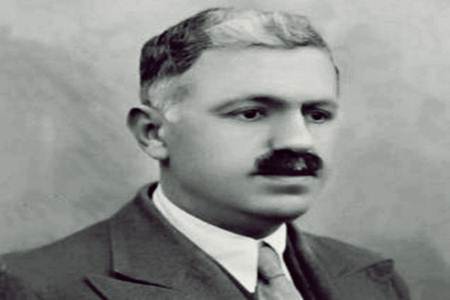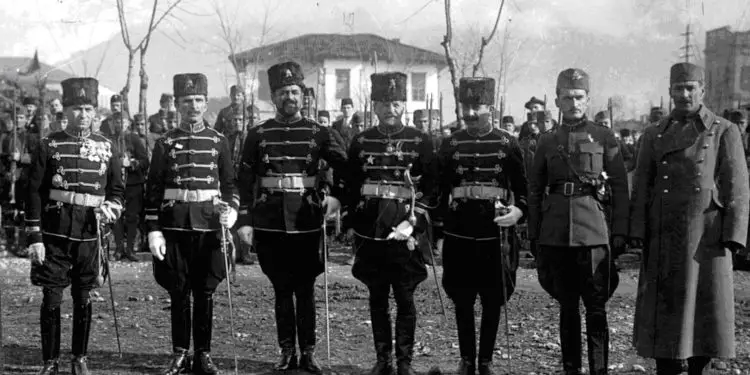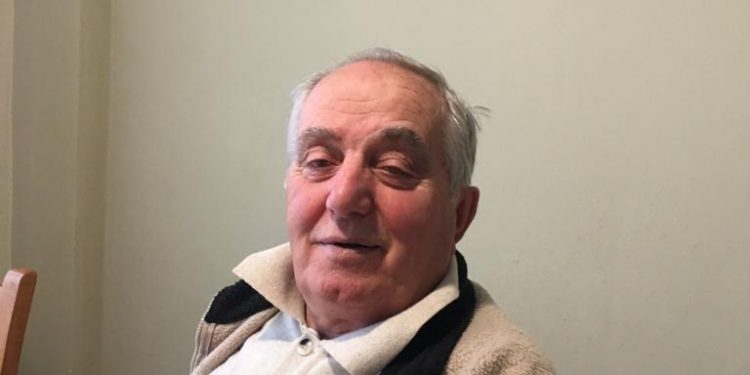Dashnor Kaloçi
Memorie.al publishes an unknown story in the distant September of 1963, when a boat escaped from Shkodra Lake to Yugoslavia, five young boys from that town, headed by Selim Kuci, or as otherwise known as “Yahuzi”, considered one of the most physically powerful and handsome boys in that city, he had become the talk of young girls who claimed to resemble a famous movie actor.
The testimony of Tanush Mulleti, one of the people who knew Jahuz Kuci closely after they were neighbors in the Russian Quarter, with his uncle, Ziya Muka, a close friend and friend of Hamza Kuci (of Selim’s father), and Ham Gjylbegut, the three adherents of the Zog Monarchy, who secretly listened to the Voice of America radio and held each other in the gaiety, saying “how does the leaf (spring) of these horns”, meaning the communist regime ?!
How did the State Security authorities pursue the terrible boy in Shkodra, Jahuz Kuçi, who sought to arrest him after he had previously beaten an Operation Officer in his neighborhood who had made his life hell, and the September 1963 escape event, when he, with the help of Bajram Balani, one of the best swimmers of the “Vllaznia” and “Partizan” team working on boats on the lake of Shkodra in the village of Zogaj, along with Cesk Jana and Hajrulla Zaganjori, a relative he was able to enter the Montenegrin waters of Yugoslavia at the time.
“At that time, before fleeing, Jahuzi was apparently under the strict surveillance of the State Security authorities who, after the incident with the Operating Officer who badly beat him, breaking his jaw, were looking forward to arresting him. That thing, the swimming they did from Shiroka to Meadows, where they had often taken me, (probably with the intent to camouflage), had been interpreted and justified by State Security, as if Yahuzi was doing training and as proof of how far she could go swimming to escape afterward. Apparently, those words had been echoed by my uncle, Zija Muka, (understood to be a lover of our family) who forbade me to go and bathe with them, thinking that they would not take me with them. ” Tells 75-year-old Tanush Mulleti tells Memorie.al for the first time, the sensational event that took place in the city of Shkodra in September 1963, about the story of the escape of Selim Kuci and his four friends. Who was Selim Kuçi, what was his family background and how was he known in the city of Shkodra? What does Tanush Mulleti have to do with this event and how does the truth of Selim and his four companions escape in September 1963, from where he later went to South Africa to the Leka Zog Royal Guard, realizing his dream of serving the First Lek, like his father Hamz Kuçi, the former Major of the Monarchy, King Zog?
Mr. Mulleti, how did you know Selim Kuci and his family in the city of Shkodra?
Selimin or as it was known in the city of Shkodra nicknamed “Jahuzi”, I have known since the late ’50s, when from the town of Kavaja where we were interned internally, I spent three summer months and spent with my family of my uncle, Zija Muka, who had the house in the Russian Quarter, not far from them in an alley, had the house, Jahuzi, as we called the neighborhood children, but also his friends a little bigger than us. For example, Hysen Kocia, who later became one of the most popular tenors in the Opera and Ballet Theater. Ceni was the “commander” of the neighborhood’s pap, and from him, I first met Jahuz, as they both had a lot of friendship with each other, and often took me with them when they went to wash in the lake, in Shiroka. I knew Jahuzin and his family better after 1959, when we, as a family, left Kavaja and settled in the city of Shkodra, and I continued to stay at my uncle Zija Muka’s house all the time since I had all peer-to-peer, Cen Kocina, as I said, whose mother was the sister of Ibrahim Tukici, the famous Opera and Ballet singer and ensemble of folk songs and dances. I remember with nostalgia the time I spent part of my childhood, adolescence, and my youth, between the families of that neighborhood and friends a little older than me, who featured: Jahuzi, Cen Kocia, Vildan Tufi (trainer) well-known Athletics), etc.
Returning to Jahuzi and his family, how did you know his father, Hamza?
As I told you earlier, their family was neighbors with my uncle, Ziya Muka, who was one of the closest friends of Jahuz’s father, Hamza Kuci, a former Major of the Zog Monarchy, who was said to have been loyal. and with close friendly ties to King Bird. A graduate of World War I at the Vienna Military Academy, Hamz Kuçi served as a military and personal translator for the commander of the Turkish Military Garrison of Shkodra, and the city’s Valiu General Hasan Riza Pasha throughout the siege. of Shkodra by Serbian-Montenegrin forces from the end of 1912, until the first months of the beginning of 1913. Hamza was known throughout the city of Shkodra as a true and intellectual Western-minded master of several languages. the foreigner, who after suffering more than a decade in the Burrel political prison, returned to his family in Shkodra, where he had a wife and two sons, Jahuz and Melek. Although, as I said, Hamza was respected throughout the city of Shkodra, where he was proud even after prison to challenge the communist rule, his friends were few, and he was besides Ham Gjylbegut, a well-known former officer. of the Monarchy, Hamza was accompanied and even a close friend of my uncle, Ziya Muka, who was known as a supporter of King Zog, who never participated in the voting that was held throughout the communist regime from 1945 to ’90. -en. Unlike my uncle, Zijaj, who was not out of the house, but was alone in his room, listening to the radio, on Voice of America (exaggeratedly, there were seven or eight radios in his room), Hamz Kuçi came out of his lap house in the city of Shkodra, and with Hamit Gjylbegun (an anti-Communist, his son Virtu died in the Maliqi Poetry Camp as a political prisoner), they went to a close friend of theirs, Fadil Hoxha, who was listening to Radio Voice of America and when they met their uncle, Zijana, held each other in the gaiety (as the Shkodra people say), saying: “The leaf does not catch this criminal”, having the word about the communist regime in power.
What about Fadil, persecuted like Hamza and Hamit?
Not only was he not persecuted, but he had his children in good jobs. (But this has been Shkodra who did not like politics for many days even though with different political and family beliefs and backgrounds, they had close friendships and friendships with each other). Fadil had been a teacher and one son (Ismet), who had the Chief of Education on the Executive Committee, made it a problem at a meeting, saying that “the two reactionaries,” Hamit Gjylbegu and Hamz Kuçi, went to his father’s home. he, Fadil, and listen to Radio Voice of America.
Were there any problems with this?
No, after Bilal Parruca, who was chairman of the Executive Committee of the district of Shkodra, closed it, he was known as a liberal who supported the persecuted families, who called Ismet and told him to look at that job, that his father had been blindfolded and people were talking too much. Ismet not only denied him that Hamit Gjylbegu went to Riza Kuci’s house and listened to the Voice of America radio, but told Bilal that he could not bring his father’s friends out of the house? !
Returning to Hamza Kuci’s son Selimi or Jahuzi as he is known in the city of Shkodra, how do you remember?
Selim Kuçi, or “Jahuzi”, was one of the most famous characters in the early 60s in the whole city of Shkodra, as he was one of the most handsome and physically powerful boys Shkodra had at the time. that even before him the bravest and most “brave” boys of that city were “suspended” and could not be doubted! He had no one in his neck and was also a wise boy who had inherited the family gene, but his family biographical circumstances had forced him to work as a bulldozer at an SMT (Car and Tractor Station), somewhere in the suburbs. Shkodra. Jahuzi had a straight and tall body, with curly black hair, and very handsome that was the subject of conversation with the young girls of that time.
What did Jahuzi look like in the city of Shkodra?
Jahuzi stood out for everything and as I said he was one of the most famous characters in Shkodra of those years, who didn’t leave a movie without seeing it. Jahuzi was one of those queuing and getting a lot of tickets, (for those who were on his neck), because thanks to his physique, he would enter several times and never leave the counter without getting tickets. I remember when Jahuzi badly beat a Security Officer covering his neighborhood as a Security Operator, breaking his lower jaw with only a handful. Jahuzi was generally calm and did not fall on anyone’s neck, but he did not bear to hurt anyone, and yet, the security officer, rolling around, so annoyed him that Yahuzi punched him, which forced him to make the decision to escape afterward. Unlike Jahuzi, he was his brother, Melek, a very wise son who studied foreign languages and languages.
No arrest and no problem with that action, ..!?
He was not arrested, as the Security Officer did not indict him not only for his shame but also for fear that Jahuzi had threatened to: if he did so, he would find his side and physically wipe him off the face, whenever he got out of prison. But it was said to have been kept secret and not made public by the Internal Affairs Department itself, so as not to diminish the image of the State Security Officer.
How do you remember Jahuzi’s escape?
Jahuz’s escape at the time made a lot of noise, not only because he escaped with four other friends, fleeing in the middle of the lake, but more than he was one of the city’s most famous characters. Jahuz had long thought of escaping, and as a result, he had not created a family. But the foremost thing I say and the fact that Jahuzi wanted to run away is the fact that long ago, he was training and rehearsing how far he could go swimming. Initially, he went swimming up to the middle of the lake, where Rozafa Castle was said to look like. And then by cutting the lake in the middle, from Zogaj or Shiroka and coming out to the Meadow neighborhood, which is a short distance away.
With whom did Jahuzi swim that distance, alone?
He only did it, but more with Hysen Kocina (the later singer of the Opera and Ballet Theater) and often took me with him. Ceni at the time (in the late ’50s and early’ 60s) worked as a carpenter and as he left work at lunch, renting a bike, hiring me before and when we went to Shiroka, told me to return quickly, to bring the bike to the place where he had rented it, and to go to the lake where Jahuzi was waiting. One day they told me they would take me to swim that distance, but even though I was afraid, (I was 14-15 at the time), I couldn’t say no.
And you went with them to do that swimming distance …?!
I went a couple of times, but when I was tired they kept me, but it didn’t last long, because one day my uncle, Ziya Muka, called me and said that; ‘Categorically you don’t have to go to the lake anymore’, but if I wanted, I could only go to the Drin River or Buna.
You hadn’t even gone through that thing, so escaped?
Not only when I was not 14-15 years old, but later, since I was an only boy and four sisters, I had never thought of escaping from Albania.
How do you remember Jahuzi’s escape?
Jahuzi escaped from Shkodra Lake on September 23, 1963, and as he was expected to go swimming, he fled with a small boat that had Bajram Balani from Zogaj, working with that boat with the fishing brigade, but As he was also a talented swimmer, that boat was also used by the Zogaj border crossing when they needed it. Given this, Bajram Balani was considered a trustee of the regime and no one would think he would be “compromised” by Jahuzi and his friends, such as Cesk Jana, Hajrulla Zaganjori, and an unrelated cousin. I can’t remember the name. I also knew those Gangsters, because Hajrullah’s brother, Shaqiri, I had a friend, and we conducted the army together, and all, like Yahuzi and Eid, were brave boys and swimmers whom you could not find stronger. At that time, after that event, the people of Shkodra underestimated and praised not only Jahuzi, who was known for being brave, but also Bajram Balani, who had shown himself to be a man and a believer in that action, after many others who had made plans before or afterward, were dictated by State Security. This has been one of the few events that the Security Service did not penetrate, even though they were five. Their escape made a lot of noise at the time, not only because there were five, but because it was a serious event for the communist regime that trumpeted more than; the borders were inviolable and there was no fly.
How was that event commented or discussed?
It was said that so many brave boys were said to be the fifth, that the border guards might have seen them, but gave no alarm, as they would be pursued and endangered, as they would never fall alive in the hands of our border guards. It was also said that they would have had the motorboat, as it was impossible for them to flee the Montenegrin waters so quickly, giving the shovels, but the truth turned out that they had only escaped with the shovels as if the boat had been engine. After their departure, various rumors circulated, no went here, no went there, no went to Leka Zogu in South Africa, not to Sweden where she was caught and broke the concert of the Albanian Song and Dance Ensemble, etc. etc. But nothing was known exactly, and no one could say anything concrete since they were talkative guys, maybe their family members might have had some information.
But when Jahuzi returned after the 1990s, did you meet him?
When Jahuzi came to Albania for the first time there in 1992, we could not meet, since I had come home to Tirana and did not know anything. When he came the second time there in 1995, he had asked to meet me. So one day, at my doorstep, and when I go out, I see Pjerin Deda, a friend of mine from Shkodra, who was working at the Foreign Ministry in Tirana at the time as Director of the Diaspora Directorate. As Perrin used to say, or Uncle as everyone used to call him, he said, “I have a man in the car, I don’t even know him, but he says I want to meet Tanush Mulleti because I have a friend. Come meet me and get rid of me, because I’m on my way to Shkodra. I really got that thing and when I got to the car, I had to look at you, Jahuz Kuci ?! I barely knew, as all the guy who had been a div, was already trembling with severe Parkinson’s and had ended up in a physical condition with pain from another incurable illness, and he died shortly after. long. It has been the last time we have been seen with her. I was worried that in 2012 when he was granted the title of “Honorary Citizen” by his father, Hamza Kuçi, by the Shkodra District Council, I was not able to go. Memorie.al




